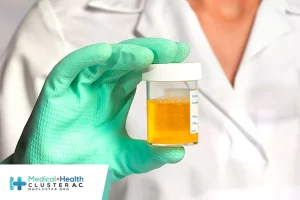CONDENA MH CLÚSTER ATAQUE ARMADO A HOSPITAL ARCÁNGELES
Leer más
Potential New Treatment Option for COVID-related ARDS

New research suggests that alpha-1 antitrypsin could be an effective option for treating those with COVID-related acute respiratory distress syndrome (ARDS).
In their study, published in the journal Med, researchers from RCSI University of Medicine and Health Sciences and Beaumont Hospital Dublin investigated the effects of using the anti-inflammatory protein alpha-1 antitrypsin (AAT) – a naturally occurring human protein produced by the liver, which acts to protect the lungs – to treat COVID-19 patients who had developed ARDS.
The study’s co-lead author, Dr Oliver McElvaney from the RCSI Department of Medicine and Beaumont Hospital, said: “We know that patients who are critically ill with COVID-19 are more prone to developing severe inflammation throughout the body, with a disproportionately high rate of progression to ARDS and other serious respiratory issues.”
“We think AAT might be able to provide some protection against the more harmful types of inflammation that arise in severe COVID-19 and other conditions with a similar inflammatory profile,” he added.
Study Details
For the phase 2, multicentre, randomised, double-blind, placebo-controlled trial, 36 patients enrolled between April 20, 2020, and March 18, 2021 were randomised to receive weekly intravenous plasma-purified AAT for 4 consecutive weeks, weekly AAT for one week followed by weekly placebo for 3 weeks, or weekly placebo for 4 weeks. The placebo used was normal saline.
Eligible patients were aged 18 years or older, had a laboratory confirmed diagnosis of COVID-19, and were receiving ventilator support for moderate-to-severe ARDS. The study groups were adequately matched for age, BMI, and clinical severity.
The primary endpoint was the change in plasma interleukin (IL)-6 concentration at one week. In addition to assessing safety and tolerability, changes in plasma levels of IL-1β, IL-8, IL-10, and soluble TNF receptor 1 and clinical outcomes were assessed as secondary endpoints.
Decreased Inflammation, Safe, and Well Tolerated
Natalie McEvoy, senior clinical research nurse in the Department of Critical Care and Anaesthesia at the RCSI and Beaumont Hospital and the paper’s co-lead author, said that this study is the first randomised control trial of AAT for acute respiratory distress syndrome.
The results showed that treatment with ATT led to decreased inflammation after one week. In addition, the treatment was safe and well-tolerated, and did not interfere with patients’ ability to generate their own protective response to COVID-19.
The authors reported that the study met its primary endpoint, with decreased circulating IL-6 concentrations at one week in the treatment group, whereas in the placebo group IL-6 was increased.
“No difference in mortality or ventilator-free days was observed between groups, though a trend towards decreased time-on-ventilator was observed in AAT-treated patients,” they said, adding that a larger trial was needed to “determine the effect of this therapy on clinical outcomes such as mortality or ventilator-free survival”.
Early Results Encouraging
The authors acknowledged a number of limitations of their study, including that the trial did not include patients being treated outside the intensive care unit, and that the study population was not matched for sex.
They pointed out that when the study began, treatment with dexamethasone was not the standard of care for severe COVID-19-associated ARDS, although over 70% of patients in each group were receiving dexamethasone at randomisation, so “further study is required to determine if the effect of AAT in steroid-treated patients is an additive or synergistic one”.
They also highlighted that none of the patients studied were vaccinated against COVID-19, so “the impact of vaccination on immune responses to SARS-CoV-2 was therefore not captured”.
Professor Gerry McElvaney, RCSI Department of Medicine and Beaumont Hospital, and senior author on the paper, commented: “These early results are encouraging, and will we hope form the basis for a larger trial to see how much of an effect reducing inflammation using AAT has on clinical outcomes such as mortality.
“This discovery suggests a potentially important role for AAT in the treatment of ARDS and other inflammatory diseases associated with COVID-19,” said the authors, adding that “the data support progression to a phase 3 trial, and prompt further investigation of AAT as an anti-inflammatory therapeutic”.
Créditos: Comité científico Covid




